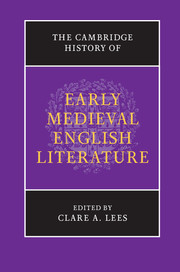Book contents
- Frontmatter
- Contents
- List of Illustrations
- List of Contributors
- Acknowledgements
- List of Abbreviations
- Introduction: literature in Britain and Ireland to 1150
- I WORD, SCRIPT AND IMAGE
- 1 Writing in Britain and Ireland, c. 400 to c. 800
- 2 The art of writing: scripts and scribal production
- 3 Art and writing: voice, image, object
- 4 Of Bede’s ‘five languages and four nations’: the earliest writing from Ireland, Scotland and Wales
- 5 Insular Latin literature to 900
- 6 Bede and the northern kingdoms
- II EARLY ENGLISH LITERATURE
- III LATIN LEARNING AND THE LITERARY VERNACULARS
- Bibliography
- Index of manuscripts
- Index
5 - Insular Latin literature to 900
from I - WORD, SCRIPT AND IMAGE
Published online by Cambridge University Press: 05 February 2013
- Frontmatter
- Contents
- List of Illustrations
- List of Contributors
- Acknowledgements
- List of Abbreviations
- Introduction: literature in Britain and Ireland to 1150
- I WORD, SCRIPT AND IMAGE
- 1 Writing in Britain and Ireland, c. 400 to c. 800
- 2 The art of writing: scripts and scribal production
- 3 Art and writing: voice, image, object
- 4 Of Bede’s ‘five languages and four nations’: the earliest writing from Ireland, Scotland and Wales
- 5 Insular Latin literature to 900
- 6 Bede and the northern kingdoms
- II EARLY ENGLISH LITERATURE
- III LATIN LEARNING AND THE LITERARY VERNACULARS
- Bibliography
- Index of manuscripts
- Index
Summary
The history of Insular Latin literature is inextricably linked to the story of the establishment and growth of the Church. All the surviving texts with which this chapter deals were composed by those who were in holy orders or had taken monastic vows; their overall focus is God-ward, their guide the Scriptures, their agenda the spread of the faith and the carrying out of the Church’s business. The centrality of the Latin Bible, the need to maintain daily prayer, the sacraments and preaching, and therefore the requirement to educate those charged with doing these things, ensured the language’s continued prevalence and relative linguistic stability. Up to a point, Latin also became, and remained, the preferred language for some kinds of official transaction, such as royal diplomas. To stop there, however, would be to suggest a purely utilitarian attitude to Latin literacy. Its high status is due to factors beyond pragmatism: the desire for continuity with the early Church in the West and with the writings of its most cultured figures; the aesthetic appeal of the monuments of classical Latin literature which made their way to Britain and Ireland; even simply the sheer joy of excelling in a language so distinct from one’s native tongue and the yearning to honour the Almighty with works of carefully crafted beauty.
The fact that the inhabitants of Britain and Ireland succeeded in composing Latin literature that is diverse and full of interest owes plenty to those who taught or influenced them, as well as to the earlier books they were able to acquire. It is also a mark of their innate gifts of insight and imagination. This chapter is concerned principally with Latin prose and poetry written in England or by Anglo-Saxons elsewhere, up to 900. Yet, considering its importance at a formative stage in England’s cultural development, works written in Ireland or by the Irish will also be considered, where they are not covered elsewhere in this volume. In the background, too, is the earliest phase of Britain’s known literary history, namely Latin works produced by British authors towards the close of the period of Rome’s control and as the Empire disintegrated and the Germanic peoples began to settle in Britain. Latin written in Wales later must also play a part in the narrative.
- Type
- Chapter
- Information
- The Cambridge History of Early Medieval English Literature , pp. 120 - 157Publisher: Cambridge University PressPrint publication year: 2012
- 2
- Cited by

